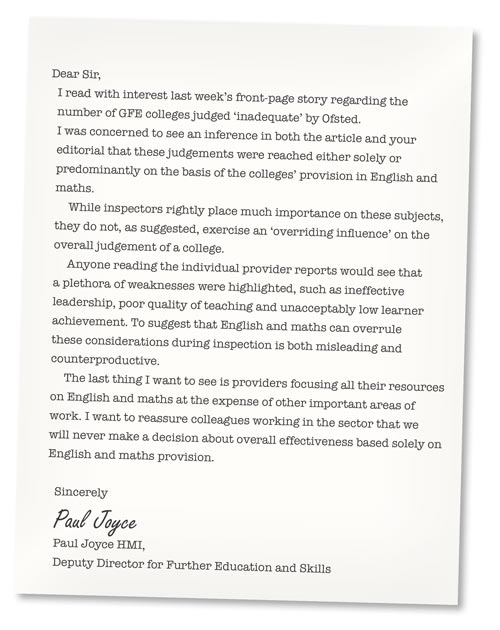Sally Hunt explains why the UCU is calling for FE employers to move hourly-paid and casual staff who have been working at an institution for at least two years onto permanent contracts.
Last week, FE Week wrote about Lincoln College, where a threat was allegedly made to withhold pay from part-time agency staff because of a disagreement over marking.
On that occasion, the issue was quickly resolved and the affected staff didn’t lose out financially.
Worryingly though, the story was yet another example of just how insecure and vulnerable to manipulation the employment of many college teachers can be.
In April, a survey by the University and College Union (UCU) revealed that 34 per cent of lecturers, and 37 per cent of other staff involved in teaching in FE colleges are employed on what we term “precarious” contracts.
These include hourly-paid, variable-hours and term-time only contracts, as well as staff who are employed through an agency.
Thirty colleges employ more than half their teaching staff on these types of contracts.
But does it make a difference whether a lecturer has a permanent contract or not?
We think it does. The entrenched insecurity of many FE contracts causes real issues for the affected staff – and their students.
The most common complaint we hear from staff on casualised contracts is that they are not paid properly for their work planning and preparing lessons or assessing students’ work.
Staff who struggle to fit lesson preparation or marking into their paid hours have even less time to provide the help students need outside of their contact hours.
Casualised staff very often don’t have the same access as their permanent colleagues to training, development and support, and many report having little idea what they will be teaching from one term to the next, being expected to pick up courses at short notice.
Too many teaching staff find themselves stuck in a cycle of short-term, precarious contracts
As well as affecting their professional lives, insecure contracts have a profound personal impact on staff.
Individuals on hourly-paid contracts are classed as workers not employees, giving them access to fewer employment rights relating to parental leave, redundancy pay, minimum notice periods or unfair dismissal.
Casual contracts make it cheaper and easier to hire and fire staff, increasing their sense of vulnerability.
Many casual staff also struggle to make ends meet because of the variations in their income. Over half of respondents (56 per cent) to a UCU survey who were on “precarious” contracts said that they had struggled to pay household bills.
Nearly two fifths (39 per cent) had experienced problems keeping up with mortgage or rent commitments and three in 10 (29 per cent) had found it difficult to put food on the table. Women tell us that the precariousness of work makes it hard to plan for a family, and extremely difficult to resume their careers after time off.
Colleges protest that casual contracts provide necessary flexibility, but too often this only works one way.
The reality is that too many teaching staff find themselves stuck in a cycle of short-term, precarious contracts which are more often associated with companies like Sports Direct than an FE college.
Hardworking staff are the cornerstone of successful colleges, but in many institutions casual teaching staff are getting great results in spite of, not because of, the support they get from their employer.
At UCU, we believe that greater workforce planning and employment stability will deliver a more effective learning environment as well as a fairer workplace.
That’s why, as part of our pay claim for 2016/17, we’re asking FE employers to move hourly-paid and casual staff who have been working at the institution for two years or more onto permanent contracts which reflect the hours they normally work.
The union is also calling on the government to take a closer look at the way staff are employed in colleges, and improve the way that institutions’ use of casual contracts is reported in national data.
Such a high level of precarious employment poses a real threat to quality, but it also makes FE a less attractive place for the best and brightest teachers to work.
If we really want to ensure a strong and sustainable FE sector in years to come, we need better workforce planning that provides for stable jobs and allows staff to plan ahead for their own future.




